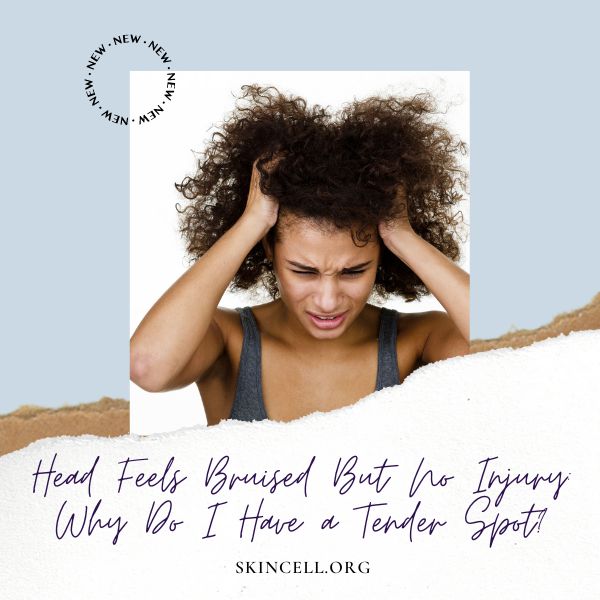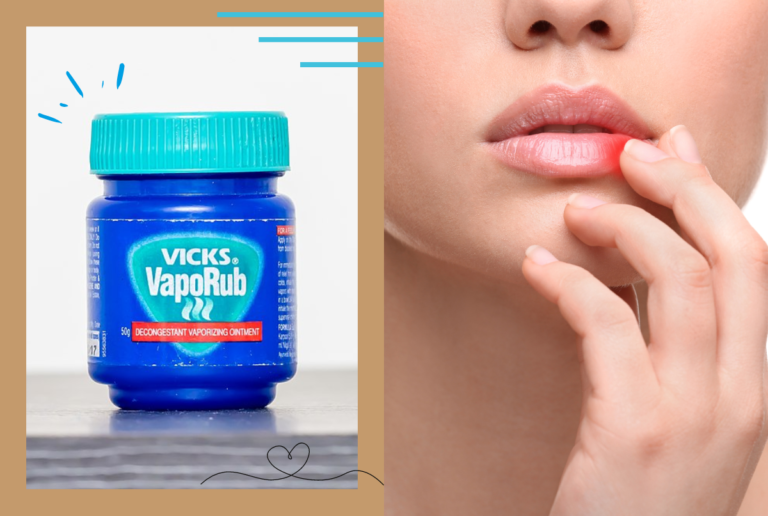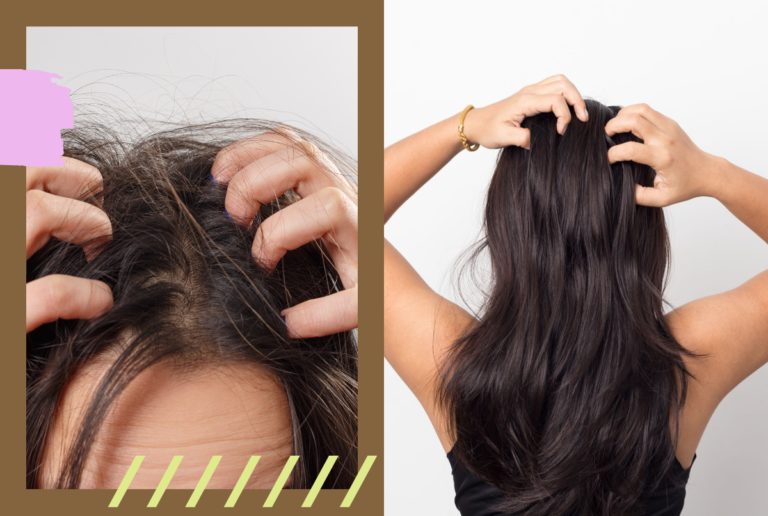Head Feels Bruised But No Injury: Why Do I Have A Tender Spot?
We’ve all had our fair share of injuries!

In any case, we resolve the effects of these injuries with the help of simple home remedies, some medications, or a visit to the doctor. Some of them even subside on their own after a while.
But the human body is like a highly complex machine. And while it is beautiful and harmonious for the most part, it can encounter issues at times. One such instance is a feeling of tenderness on your scalp.
If you hit your head on something, then a bruise and tenderness in the affected area are pretty much expected. However, if you come across a tender spot without any signs of a physical injury, it’s natural to get worried.
That is why we have discussed this issue in this guide so that we can alleviate some of your concerns. Let’s dive in, then!
Accompanying Symptoms Of A Tender Scalp
You may not know it, but a bruise and tenderness on the scalp can affect both adults and children. In many cases, it is an effect of an underlying health problem. Or, in some situations, it may be caused due to certain external factors.
If the tenderness is due to a physical head injury, the skin surrounding the injured part may feel soft, accompanied by pain or scalp irritation. You may also observe discoloration of the skin caused due to clotting of blood.
But if the bruising or tenderness appears out of the blue, then it will be accompanied by a few additional symptoms apart from the ones mentioned above. These additional conditions may be confusing for many people, especially if the problem is encountered the first time.
That is why we have described the most common accompanying symptoms below:
1. Headache
A headache is possibly the most common symptom of this issue. It is the most obvious sign that indicates the scalp tenderness is caused by an underlying condition.
This is unlike a head injury, in which case the scalp pain is localized to a particular spot. The head pain, in this scenario, will affect your entire scalp in addition to the tender spot. In some extreme situations, it might affect the areas around your forehead and neck.
2. Rashes
Another common symptom of this condition is the appearance of numerous rashes on and around the tender spot. These rashes increase the pain sensation and skin irritation around the affected spot, which can cause added discomfort.
This condition may become even more aggravated if the tender spot is exposed to too much friction from increased scratching, combing, and wearing caps or hats. And the contact rashes that develop as a result increase the scalp sensitivity and tenderness even further.
3. Excessive Itchiness
The appearance of a tender spot on your scalp may often be accompanied by itchy skin. In this regard, mild to moderate itchiness is to be expected due to the development of rashes on the scalp. But if the itching sensation becomes too much, that usually indicates an underlying skin condition.
Basically, the itchiness spreads throughout the scalp, which makes it extremely uncomfortable. And the itch persists for a long time, further adding to the discomfort.
4. Hair Loss
Another common symptom of scalp tenderness is hair loss around the affected part. In some severe cases, hair loss can even occur throughout the scalp.
When the scalp becomes tender and bruised, the hair follicles become easily dislodged from their roots, which ultimately leads to this concern. And if you do not diagnose and treat the problem soon, the hair loss may become permanent.
5. Pain And Sensitivity In Other Parts Of The Body
In addition to the scalp, you may notice that other parts of your body, such as your elbows, hips, and knees, have become highly sensitive to pain. Over time, this pain and sensitivity may increase, which can make your life difficult.
Typically, the pain begins simultaneously throughout the body, and likewise, all the affected areas may feel equally sore. As such, it can be considered an indication of a serious medical condition.
What Is The Cause Of This Problem?
From a medical standpoint, a wide range of health conditions may be responsible for this issue. Some of them can be relatively benign, such as minor inflammations or tension headaches. Other times, they can be caused due to serious medical conditions.
In this section, we have discussed some of the most pertinent causes behind this problem, along with some possible solutions that you can try.
1. Scalp Psoriasis
Psoriasis is a skin condition that occurs due to problems related to the immune system. It is triggered due to a complex cascade of immunological reactions that drastically increases the rate at which skin cells multiply.
Because of that, the skin develops dry and scaly patches that are often accompanied by itching sensations. When it occurs on the scalp, you may observe flaky skin that peels off easily. In severe cases, there may be redness and bleeding on the scalp, especially if the skin is tender.
Unfortunately, there is no definitive cure for this condition, and the treatment is symptomatic. Its symptoms can be managed with the help of topical ointments and skin creams. The formulation in these ointments removes the scaly buildup of skin on the scalp, thereby minimizing the soreness and itching.
If the skin ointments do not have any effect, medical professionals may recommend oral medications or injections. They may also suggest phototherapy treatment, where the affected part of the scalp is exposed to ultraviolet light, which helps to reduce the symptoms.
2. Scalp Ringworm
Ringworm is a type of fungal infection that can occur anywhere on the skin. You may have heard of conditions, such as athlete’s foot or jock itch. These conditions are caused by a ringworm infection and are often accompanied by itchiness.
Likewise, when it occurs on the scalp, it is known as tinea capitis. In this case, the tender scalp becomes itchy and develops a flaky appearance. It may also cause hair loss around the affected area, as the fungal infection destroys the hair follicles.
Over time, the flaky, tender skin develops abscesses and sores filled with pus, which are extremely painful in addition to being itchy. What’s more, the disease is highly contagious, which makes it a major cause for concern.
To treat this condition, you should apply topical antifungal creams on the affected part of your scalp. And make sure you frequently wash your hair with antifungal shampoos. There are oral antifungal medications available as well, which complement the antifungal creams and shampoos. Use antibiotics along with them to prevent bacterial infection in the sores.
3. Other Types Of Infection
A tender spot may develop on your scalp due to bacterial and viral infections as well. The hair follicle may become infected with the Staphylococci bacteria, which gives rise to the condition known as bacterial folliculitis. This, in turn, causes the affected part of the scalp to become sore. The sore scalp feels painful and itchy and is accompanied by hair loss in severe conditions.
In such cases, the medical professional may prescribe over-the-counter antibiotics and skin creams. You can also get some relief if you wash and clean the infected part with a warm and moist compress.
Similarly, viral infections, such as shingles and chickenpox can cause parts of the scalp to become tender and irritable. You should seek professional medical advice to treat these diseases as soon as possible. Subsequently, the scalp tenderness should subside once the disease has been cured.
4. Alopecia Areata
Alopecia areata is a relatively rare autoimmune condition and is primarily characterized by severe hair fall. It can occur in any part of the body, but it occurs mainly on the scalp. The hair follicle becomes weak, due to which patches of hair start to fall out.
Those who suffer from this condition often report the skin in the hairless patches to be tender. In some cases, there may be pain and itchiness, although these symptoms are typically not associated with this condition.
Many medical professionals believe that nerve damage is the underlying cause of this problem. However, it can also be caused by an improper diet or an autoimmune response.
A medical provider may recommend corticosteroid injections along with immunosuppressant drugs to treat this condition. They also suggest practicing a healthy diet to keep the symptoms under control. The tenderness can be treated this way, but if the hair follicles become too damaged, the hair loss may become permanent.
5. Temporal Arteritis
Temporal arteritis is a condition where the temporal arteries and blood vessels become constricted and inflamed. They are present in the region around the temple and forehead. And they transport blood throughout the head and brain.
If these blood vessels become inflamed, it gives rise to a throbbing headache that is accompanied by a tender and sensitive scalp. Not only that, but it also may give rise to vision problems, jaw pain, and swelling of the neck muscles. In extreme cases, you may experience body aches elsewhere, too, such as on your shoulders, arms, and lower back.
To treat this problem, doctors prescribe steroid medications, such as glucocorticoids that actively reduce the inflammation of the temporal arteries and blood vessels. If the problem still persists, we recommend getting proper treatment as soon as possible, or else it can become serious.
6. Dermatitis
Dermatitis, which is also known as Eczema, is a severe inflammation of the skin. In fact, it is one of the worst skin conditions that exist today, and it can occur on any part of the body, including the scalp.
There are different kinds of dermatitis, all of which can cause bruises and tenderness on the scalp. The most common is atopic dermatitis, which is caused due to underlying genetic conditions. It is a chronic condition that lasts for a long time and it typically occurs mostly in children and infants. And since it is genetically transferred, it is not contagious by nature.
In this condition, the skin cells are not able to protect themselves against external irritants and allergens as effectively. Because of this, the skin becomes inflamed by objects, such as dust, animal dander, pollen, or even sweat.
Treatment is generally symptomatic, and the tenderness and scalp irritations can be minimized with the help of skin creams and antibiotic shampoos.
Contact dermatitis is another type of skin disorder that is almost similar to atopic dermatitis, with the difference being that it is not genetically transferred. In that context, the treatment for this condition is the same as above.
Seborrheic dermatitis is yet another type of dermatitis that is caused due to problems with the sweat glands and hair follicles on the scalp. The symptoms are the same as in the previous two cases, where the skin becomes flaky and itchy. You may also observe redness in the skin, and the affected part often becomes greasy.
This condition can be treated with topical ointments, anti-dermatitis shampoos, and oral medications.
7. Allergies
Allergies are often characterized by acute inflammations triggered by an overactive immune system. In this regard, an allergic reaction on the scalp often causes pain, itching, and tenderness. Some individuals may even develop rashes and sores in the affected part.
It is usually triggered by chemical products, such as shampoos, hair dyes, and cosmetics. So, the obvious solution to this problem is to avoid using such hair products altogether. But if you have already used them, and are currently experiencing tenderness on your scalp, then you should try taking antihistamine medications. These are effective at managing allergic reactions and can minimize scalp tenderness fairly quickly.
8. Other Types Of Inflammations
A tender spot on the scalp may occur due to an inflammation of other organs, such as lymph nodes or glands that lie under the skin. Such inflammations are often accompanied by additional adverse reactions, including pain, itching, swelling, or redness of the scalp.
In such a case, the treatment options may vary based on the symptoms. For instance, if the tender area has swelling and redness, you can try applying a warm compress. You can also complement it with non-steroidal anti-inflammatory drugs (NSAIDs) for quicker relief.
9. Other Causes Of A Tender Scalp
Apart from the health conditions mentioned above, scalp tenderness may be caused due to external factors like excessive sunlight exposure, braiding your hair too tightly, or even bug bites.
If you spend a lot of time outdoors, then excessive sunlight exposure is a possible cause of scalp tenderness. Like the skin on any other part of your body, the scalp is vulnerable to sunburns too. So, if it is exposed to sunlight for prolonged periods of time, it will become tender and irritated.
The affected area will feel painful, become red, and it may feel hot to touch, which are the typical symptoms of sunburn. Thankfully, tenderness can be minimized if you apply coconut oil to your scalp. And it can be avoided altogether if you wear a cap when you are outdoors.
Similarly, if you have a habit of braiding your hair too tightly, it increases the tension on your scalp, which will ultimately lead to tenderness and bruising. This will often be accompanied by a tension headache and soreness around the neck area.
The issue can be resolved by applying an ice pack or a warm compress on your scalp. You can also get rid of the tenderness and pain by massaging your scalp or by practicing relaxation techniques to ease the tension around the head area.
In case of bug bites, you might notice some pain, swelling, or rashes in addition to tenderness. Fortunately, the symptoms do not last for very long and can be mitigated easily by applying an ice pack or a baking soda paste over the affected area.
Final Words
The appearance of a tender spot on the scalp is a lot more common than you think, and there is no need to panic if you are facing such a problem. In most cases, it does not pose any serious risk and can be easily managed with timely diagnosis and treatment.
However, if it does start to get worse over time, knowing the underlying causes can be a big help, which is why we have discussed them in this guide. That said, you should actively take care of your health so that problems like this do not appear out of the blue.
Of course, if the problem is genetic, then there is nothing much you can do apart from getting symptomatic treatments. But at least you can take the necessary precautions to avoid the problem in the future.
That is all that we have to say for today. It is now time for us to wrap up this guide.
Farewell!






